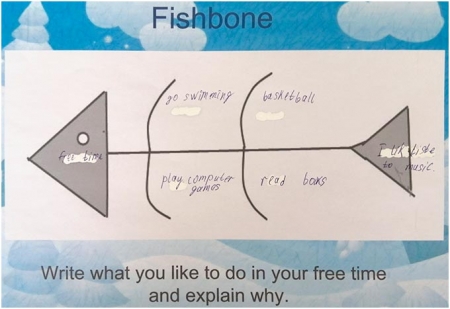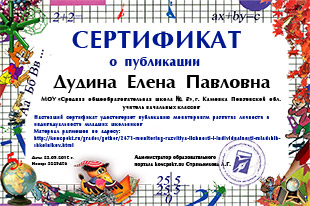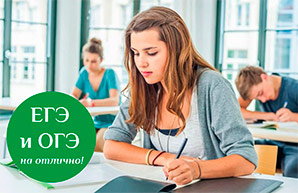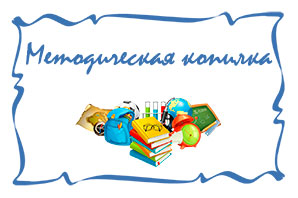Конспект урока английского языка 6 класс по теме "Free time"
Учебник: "Английский в фокусе" (Spotlight) 6 класс. Ваулина Ю. Е., Дули Д. и др.
Цели:
- познакомить учащихся со структурой и содержанием нового модуля;
- способствовать развитию лексических навыков по теме "Свободное время", навыков чтения;
- создать условия для освоения способов выражения вкусов и предпочтений в рамках изучаемой темы.
Речевой материал: read books, go windsurfing, meet my friends, go swimming, go cycling, paint, play computer games, go fishing, keen on, join, trips, present, plays, have fun, literature, novels, exchange, mad about, print.
Оборудование: учебник, компьютер, презентация, раздаточный материал, распечатанный наглядный материал, аудио и видеофайлы.
План урока
Организационный момент (приветствие обучающихся)
Teacher (T): Good afternoon, my friends. I am glad to see you. How are you?
- Oh, it’s cold and snowy today. Do you like today’s weather?
- Do you like such weather?
- What do you like doing in such weather? (Дают устный ответ в форме приветствия. Разговаривают о погоде и о предпочтениях в такую погоду)
Ch: Good morning. I`m OK, fine.
- I like snowy weather. I like skating, skiing or reading books.
- I’m on duty today…
T: Thank you.
2. Основная часть
T: And now let’s watchth evideo and guess what will be the topic of our lesson today. Lookatthescreen, please.(просмотри видео)
- Yes, the topic of our lesson is "Free time".
- Today we are going to talk about different types of free time activities and know some ways how to spend free time with pleasure.
- Say the words connected with the phrase "free time".
Ch:
- "Free Time";
- "Leisure Activities";
- "Past time".
Vocation, holiday:
- fun, friends;
- board games, outdoor activities.
T: You are good students.
- What do you like to do in your free time?
- What do you do once a week?
- What do you do twice a week? (По мере необходимости помогать детям при ответе)
- Different people have different habits and hobbies. Look at the pictures on page 56 ex. 1. It’s time to speak about you, children.
- Tell your friends about your hobbies and pastimes. Which of these activities do / don’t you do … every day, every week, every weekend, on holiday? (Действия на картинках: to read books, to draw a picture, to listen to music, to surf the Net, to meet friends)
- For example: I read books every day. I meet my friends every week. I don’t paint when I’m on holiday.
Предполагаемый ответ ученика: I go fishing every weekend. I don’t go cycling every day. Etc.
T: Look at the ex. 2 p. 56 and try to say as in the example, you can use the words from the pictures above. Work in pairs.
Работают в парах по образцу: Do you like/enjoy…?
Yes, I do
Yes, I’m very keen on / fond of / interested in…
No, I don’t.
Not really / at all.
A: Do you enjoy painting?
B: Not really. What about you?
A: I’m very fond of painting. Etc.
Прочитываем и обсуждаем рубрику StudySkills, обращаю внимание учащихся на текст.
T: Is this an article or a leaflet?
Сh: A leaflet.
T: What is it about?
Ch: Clubs at Bolton Middle School.
T: Why was the text written?
Ch: To give information about the clubs.
T: Where could you see it?
Ch: In the school newspaper.
T: How many clubs are there?
Ch: Seven.
T: Excellent. Now, you are going to listen to the text ex. 3 on page 56.
- So listen and fill in the gaps and tell me how many clubs and what clubs do you hear?
- You can write your words in the textbooks.
Учащиеся прослушивают текст, но не смотрят на него (закрывают другой тетрадкой) и записывают в тетрадь необходимую информацию.
T: What about this text?
Ch: P: This text is about different clubs at Bolton Middle School…
T: How many clubs are there?
P1: Seven
T: What are they?
P2: Art club.
P3: Drama club.
P4: Sports club.
P5: Computer club.
P6: Book club.
P7: Music club.
P8: Photography club.
T: Did you fill in the gaps? Let’s check.
P1: Drama, Sports and Music clubs meet once a week.
P2: The Art and Photography clubs meet twice a week.
P3: The Book club meets three times a week.
P4: The Computer club meets daily.
T: Good work! And now explain the highlighted words in the text. Use your dictionary and translate them.
Учащиеся ищут значения выделенных слов в словаре и составляют предложения. Предполагаемый ответ:
- He’s not keen on sailing.
- Why don’t you join us for lunch?
- I love plays at the theatre.
- Literature is fantastic.
Физкульминутка
T: Well done! Let’s have a rest. Look at the blackboard. (На доске заранее пишем слова физкультминутки, либо выводим на экран. Учащиеся читают и вместе выполняют действия под музыку)
- Let’s read and do some exercises. Stand up, please.
- Thank you! Sit down.
Grammar. Compound nouns
T: Look at the ex. 4 on page 57. Read the box and find compound nouns in the text.
Объяснение на доске: wind + surfing = windsurfing. Windsurfing состоит из двух слов wind и surfing. Слова, которые состоят из двух основ называются сложными существительными (compound nouns). Аналогии в русском языке: пароход, самолет, и т.д.
Ключи к тексту: windsurfing, football, basketball, baseball, homework, armchair, volleyball, newspaper.
Ex.5 p. 57 – повторение способа словоообразования существительных при помощи суффиксов -er, -ist, -or. Мы добавляем данные суффиксы к глаголу или существительному, чтобы образовать другое существительное со значением "производящий это действие".
Ключи: director? artist, footballer, player, writer, painter, cyclist, presenter.
Развитие умений диалогической речи в рамках изучаемой темы: освоение умения проводить опрос с целью исследования проблемы.
T: You must come to each other and ask your classmates as in the example in ex.7 on page 57.
- And then answer classmates’ questions. Make a graph.
|
Name |
Cycling |
Reading |
Painting |
Playing Computer games |
Windsurfing |
Meeting friends |
Fishing |
Listening music |
Other |
|
Danil |
+ |
- |
- |
+ |
|
+ |
- |
+ |
|
|
|
|
|
|
|
|
|
|
|
|
|
|
|
|
|
|
|
|
|
|
|
Учащимся необходимо узнать у одноклассников, чем они любят заниматься в их свободное время. И по мере поступления ответов, заполнить таблицу.
Образец:
A: What do you most like doing in your free time?
B: I like playing chess. I like reading. I like surf the Net etc.
После опроса им необходимо отразить полученные результаты в диаграмме. (пример диаграммы в задании № 7 стр. 57)
Заключительная часть
T: My dear students, in these papers you should write two sentences what you like to do and explain why. (учащиеся самостоятельно выполняют задания на листочках, используя прием "Фишбоун", на котором они должны написать, чем они любят заниматься свободное время и объяснить почему)
- Very good! Now our lesson is going to the end and I want to thank everybody. You can tell about your activities, hobbies and about your friends’ activities.
- And I enjoyed your work very much. And your marks are good.
- Open your book at p. 57 ex. 8. And your homework will be to write a paragraph about your classmates’ likes and dislikes.
- Use your notes and tell us about it. (ex.8 on page 57)
- The lesson is over. Good-bye!




